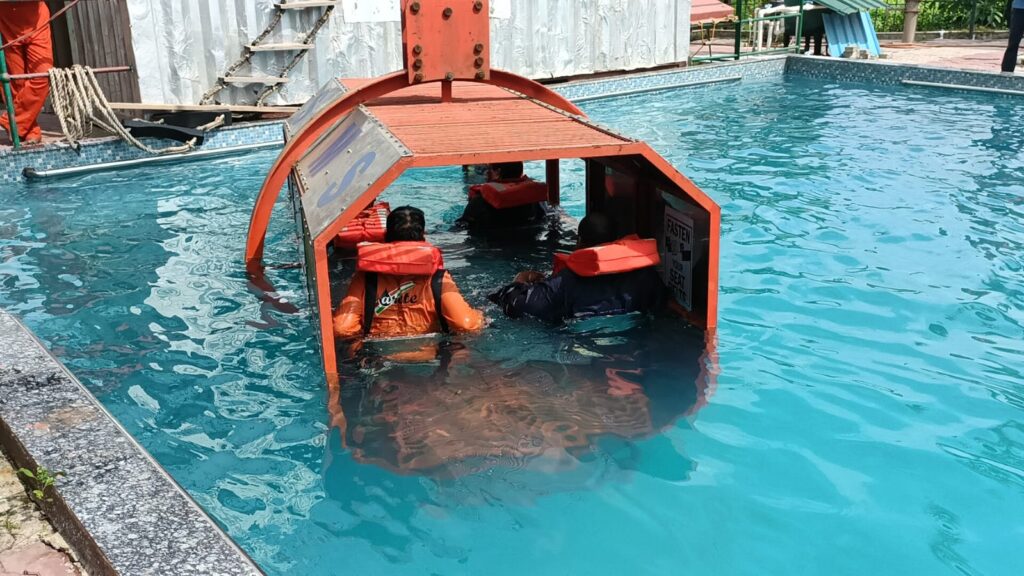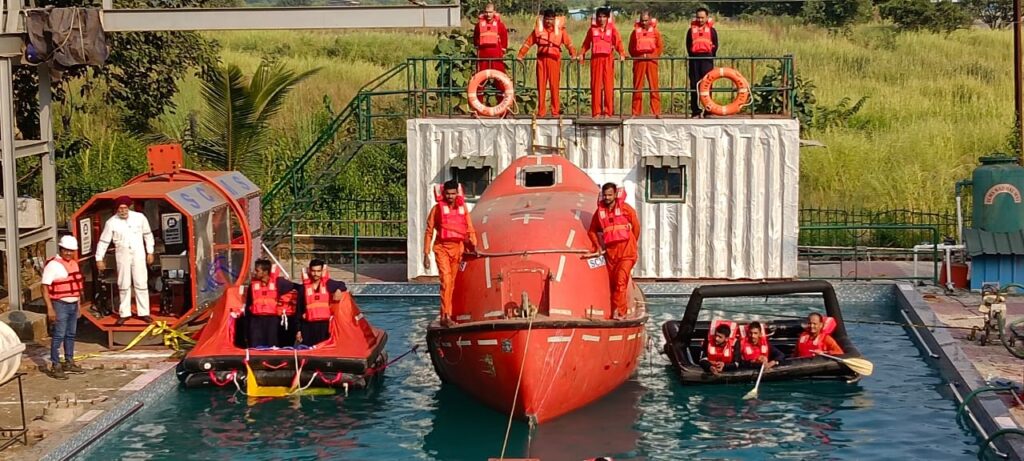
The Helicopter Underwater Escape Training (HUET) course is of significant importance for personnel involved in helicopter transport for off-shore operations. Here are some key reasons why HUET is crucial for individuals working on oil & gas off-shore installations and ships:
- Emergency Preparedness for Helicopter Operations:
- Off-Shore installations & ships often employ the use of helicopters for personnel transfer, resupply, medical evacuation, and other operations. HUET ensures that individuals are well-prepared and equipped to handle emergency situations associated with helicopter travel, such as ditching at sea.
2. Enhanced Safety During Helicopter Transfers:
- HUET equips participants with the skills needed to evacuate a helicopter safely in the event of an emergency landing on water. This includes learning how to exit from a submerged/Capsized helicopter and use safety equipment like life jackets and life rafts.
3. Compliance with Maritime Regulations:
- Maritime regulations, including those outlined by the International Maritime Organization (IMO) and flag state authorities, may require crew members involved in helicopter operations or helicopter travel to undergo HUET training. Compliance is crucial for meeting safety standards
4. Risk Mitigation:
- Helicopter travel involves inherent risks, and HUET is designed to mitigate these risks by providing participants with the knowledge and skills needed to survive and respond effectively in emergency scenarios.
5. Understanding of Helicopter Safety Equipment:
- HUET covers the proper use of safety equipment specific to helicopter operations, such as life vests, immersion suits, and Emergency Breathing System(EBS). Understanding how to use this equipment correctly is vital for survival in the event of a helicopter accident.
6. Prevention of Panic:
- HUET training includes practical exercises in simulated emergency situations. This exposure helps individuals develop the ability to remain calm and act rationally during stressful and potentially life-threatening events.
7. Global Applicability:
- Since ships operate in international waters and may be involved in various types of maritime activities, HUET’s global applicability ensures that personnel are adequately trained regardless of the region in which they are operating.
8. Improved Crew Cohesion:
- HUET is often conducted in groups, fostering teamwork and improving the overall cohesion of the ship’s crew. This teamwork is crucial in emergency situations where coordinated actions can make a significant difference.
9. Individual and Crew Confidence:
- HUET provides individuals with the confidence to handle emergency situations, boosting their overall resilience and ensuring that they can contribute effectively to the safe helicopter transportation.

In summary, HUET is vital to ensure the safety of personnel engaged in helicopter operations. The training contributes to compliance with regulations, enhances emergency preparedness, and equips individuals with the skills needed to survive and respond effectively in the challenging maritime environment.

